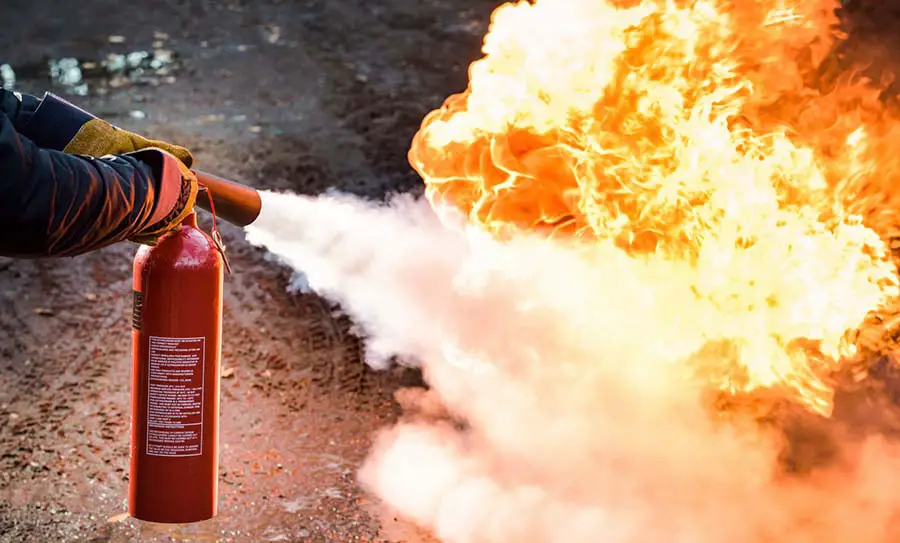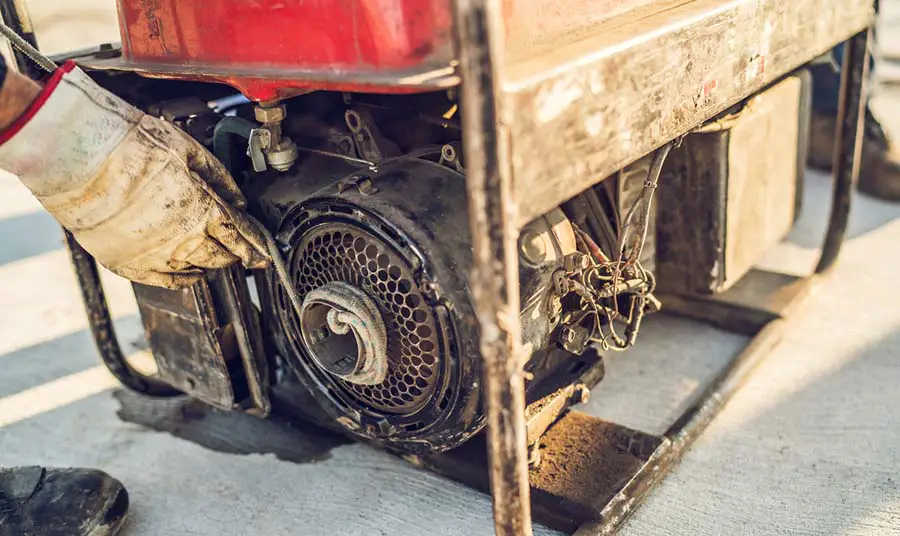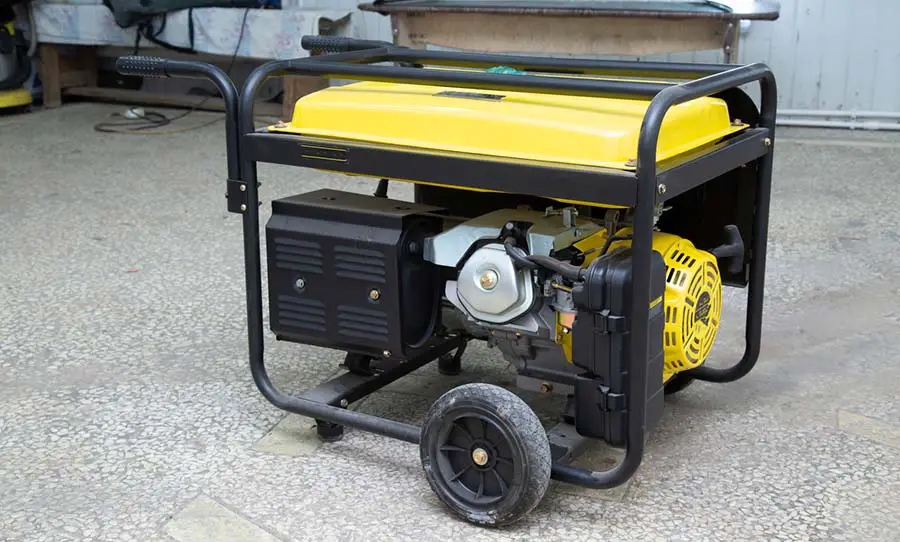
It is almost impossible to go a single minute without it in a world where power is one of our most precious utilities. Unfortunately, power outages have risen in the past decade in the US, with an average of 8% increase of power outages per year. This leads to a rise in the demand for power generators, but the question is, are they safe? Do they pose potentially life-threatening risks such as explosions?
Yes, generators can explode. A generator exploding is pretty rare, but it can happen if the generator overheats and ignites the fuel tank, fuel comes into contact with hot motor parts, or a short circuit causes a fire. Proper generator maintenance and storage can prevent most of these issues.
A generator is a handy piece of equipment and becomes more critical each decade as power outages rise. The question is, however, if they can, why exactly do generators explode? Is it a guarantee that it will explode? Is there anything you can do to try and prevent it from exploding and, if so, what can we do to prevent them from exploding?
8 Reasons Why Your Generator Might Explode
Before we dive into why a generator might explode, let us give a very brief summary of how a generator operates: a generator is a device that uses mechanical energy to produce electrical energy. Another way of stating this is that it converts mechanical power to electrical power. Because a generator functions in this manner, it generates enormous amounts of heat, leading to a possible explosion.
1. Heat as the Reason Why Your Generator Can Explode
Because your generator generates electricity, as described above, it generates a lot of heat which can trigger a chain of reactions that might lead your generator to explode. This can either be when:
- the generator overheats and, as a result, leads to the ignition of the fuel tank.
- there may be overheated motor parts that come into contact with the fuel that powers the generator.
- there may be faulty wiring in the generator that short circuits, which causes fire to spread to the unit.
2. Refueling a Generator While It Is Running
It is essential always to ensure that a generator is switched off and given time to cool off before refueling it. The time given for a generator to cool should be approximately 10 minutes. Only once the generator has been switched off and given time to breathe can you proceed to open the cap and refuel the generator with gasoline.
If you do not heed the instructions above, you risk spilling gasoline on a very hot generator. This gasoline falling on the warm generator can cause an explosion. Sometimes the spilling of gas isn’t required to cause an explosion, but the fumes of the gas alone can pose a significant risk.
This is because the fumes of gasoline are more flammable than the gasoline in liquid form. That is why the saying goes, ‘you are running on fumes’ because that is technically what a generator does when it is low on fuel – it runs on fumes! Once you open the gas tank, all it takes to ignite these fumes is one tiny, little spark.
Accordingly, the chances of these fumes igniting while refueling a generator that is already hot and still operating is enormous, and you should avoid it at all costs.
3. A Generator That Is Overloaded
It is important to bear in mind what the capacity of your generator is. The range of a generator’s capacity is quite extensive, and generators usually vary between 500 watts to a maximum of 40,000 watts. However, it’s important to note that a generator has different types of watts: starting watts and running watts.
As the name implies, starting watts are the watts used to start the generator. On the other hand, running watts are the watts required to sustain the generator while it is running. Start watts are often a little higher than running watts since generators require more power to start. Generators cannot exceed the running watts for long until they start overheating.
If a generator does overheat because it exceeded the running watts for too long, it can lead to an explosion for reasons stated in the previous section. Thus, if no circuit breaker ensures that the generator shuts down in time, it can overheat, leading to a fire.
4. A Generator With No Circuit Breaker
As mentioned before, if your generator does not have a circuit breaker, it can lead to a generator that overheats and does not shut down. When this happens, the overheating can cause an explosion for any of the reasons mentioned above.
5. ‘Backfeeding’
Before explaining how backfeeding can pose a hazard and potentially lead to an explosion of your generator, let us first define what backfeeding is: backfeeding is when you power your home using a generator plugged into the wall outlet of your home. In order to conduct backfeeding, it requires a male-to-male plug. It’s important to mention that this is both dangerous and illegal.
Once you’ve plugged your generator into the wall socket, the protection from any power surge is negated. This means that you run the risk of your electrical appliances, as well as your generator, catching fire.
This usually happens when the main electricity supply is back online; power starts flowing in the opposite direction, and two power sources now power your house. If anything catches fire due to this overload and reaches your generator’s gasoline tank, you have an explosion on your hands.
6. A Lack of Proper Maintenance

There are two main points when discussing the maintenance of generators and potential explosions.
- There are several main parts in a generator, each one requiring delicate care on maintenance on an appropriate basis. The reason for that is that a generator continuously heats and cools these parts, resulting in their wear and tear. If these parts are not maintained properly they may cause a spark. These sparks can ignite gasoline fumes as described above, resulting in an explosion.
- Generator parts that are not maintained on a regular and proper basis can physically break, which can cause the generator to short circuit. This short circuit can lead to a fire which can, as described above, result in an explosion.
7. A Generator With an Overfilled Gas Tank
An overfilled generator can easily lead to an explosion if some gasoline manages to spill into the running generator. An important thing to note is that heat leads to the expansion of flammable substances. Therefore, you must account for the room that allows gasoline to expand when heated without spilling over onto the generator.
8. Cables of substandard Quality
Using cables of substandard quality while operating a generator might not handle the generator’s electrical load. This will cause the cables to overheat and melt the plastic covering the wire. Once this happens, anything connected to the wires is set alight, including the generator. This can lead to an explosion if the fire reaches the generator’s gasoline tank.
Safety Tips To Help Prevent Your Generator From Exploding

- Do not store your generator and let it operate outside while it is exposed to the sun.
- Keep any form of fuel or gasoline away from the generator while it is being operated.
- Ensure that you always have a fire extinguisher close by, should the worst come to pass!
- Maintain and service the generator at regular intervals. To be safe, consult the manual provided by the manufacturer.
Conclusion
There is no getting around it – generators can easily explode if you are not careful! Generators tend to explode if any fire reaches the gasoline tank of the generator. The problem is that there are so many fire hazards that surround a generator. This means that a generator is the most probable cause of the fire that caused its own explosion.
It always comes down to heat, and it is vital always to ensure that your generator is never warmer than it should be – otherwise, it can cause a fire. Additionally, keep flammable substances away from the generator. The generator comes with a tremendously high risk of setting anything flammable alight, and if that flame reaches the gasoline tank, you will wish you had a fire extinguisher close.
